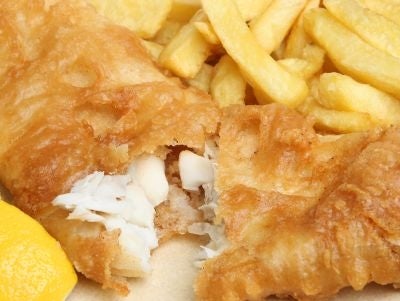Mislabeled cod fooling consumers in the UK and Ireland

A study out of Dublin has found that consumers in the UK and Ireland are being duped by mislabeled cod disguised under a coat of smoke and batter.
In a report published last week in the journal Fish and Fisheries, researchers from University College Dublin reported that of 226 samples, 28 percent of cod products tested in Ireland and seven percent in the UK were either cheaper species of whitefish or falsely presented as "sustainably sourced" seafood.
Overall, 39 of the 44 samples that were mislabeled were also either smoked, breaded or battered. Not surprising, researchers point out, given that these processing treatments can conceal the appearance of fish flesh.
In addition to passing off haddock, saithe and pollock as cod to make a profit, some brands labeled as "sustainably sourced" turned out to be endangered Atlantic cod.
Mislabeling seafood products presents numerous repercussions for consumers, the study points out - consequences that include human health risks, economic losses, and environmental impacts like overconsumption, overexploitation and the depletion of a species.
Selling endangered species of cod as environmentally friendly to meet market demand is also particularly duplicitous, authors note, given that well-intentioned consumers are being misled to purchase the very thing they're trying to avoid - unsustainable fish.
The deceptive practice also serves as a slippery slope for more "sinister activities to go unnoticed and unpunished" including the laundering of illegal, unreported and unregulated fish products.
Of the 131 samples of fish from Ireland, 37 were found to be mislabeled, while seven of 95 samples from the UK were also misrepresented.
Cod was chosen because it's currently the most popular whitefish consumed in Ireland and the UK.
In addition to more effective legislation, researchers call for increased enforcement and authenticity checks including DNA testing. Concerned consumers also need to demand more informative seafood labels, the report said.
To read more, visit http://onlinelibrary.wiley.com/doi/10.1111/j.1467-2979.2011.00426.x/full.
Join our commenting forum
Join thought-provoking conversations, follow other Independent readers and see their replies
Comments
Bookmark popover
Removed from bookmarks